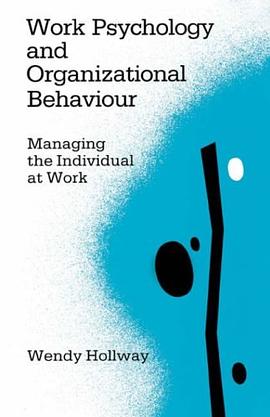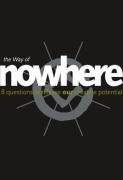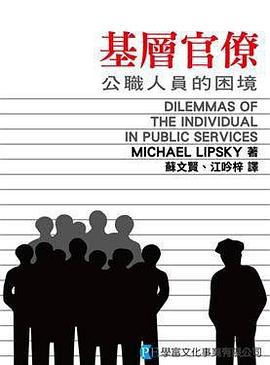

ORGANIZATIONAL BEHAVIOR: THE ULTIMATE REALITY SHOW Three years ago, when the previous edition of this book was published, Enron and WorldCom were successful and highly acclaimed companies; involvement in a dot-com was an assured path to riches, and September 11 was just a date on the calendar. Today, that's all changed. In a very short time, it's become a different world, especially the business world. Companies that once moved "from bricks to clicks" today are returning to bricks, but are keeping the clicks as well. Many organizations that downsized in a sagging economy subsequently rehired employees, only to downsize once more. And, workplaces that used to be considered safe havens from the uncertainties of a sometimes evil world, today are considered far more vulnerable than ever. To be sure, in preparing the eighth edition of Behavior in Organizations, we have taken careful notice of today's ethical scandals, the always shifting and sometimes troubled economy, and underlying concerns about terrorism that reside in our consciousness. Then again, doing otherwise would be impossible. As chroniclers of the world of work and organizations, we cannot help but come across these themes. These issues, and many others, are on the minds of the students we teach in the classroom (undergraduates, MBA candidates, and doctoral students), the workers we train on the job (ranging from minimum-wage laborers to top CEOs), and the officials from the companies to whom we provide consulting services (from start-ups to Fortune 500 firms). Whatever is on their minds also is on ours. And, these concerns get translated into coverage in this book. For the most part, what everyone wants is relevance. "Theories and research are important," our students acknowledge, so long as they offer insight into what's happening in individual's heads, what's going on in work teams, and how people are interacting with their organizations. "Tell me something I need to know," they clamor; so we listen, and we deliver. And, if those plaques acknowledging our teaching and scholarship that line the walls of our offices mean anything, we have been delivering precisely what's deeded in an effective manner for more than 60 years combined. In preparing this book, our mission was to capture this relevance in a form that could enlighten our target audience college students who desire to learn about the complexities ,of human behavior in organizations. Fortunately, we are in a good position to appreciate these complexities. When not plying our trade in the classroom or the executive suite, we can be found conducting research that contributes to the scholarly contributions that are the foundation of our field. Indeed, this is our fundamental task as professors who work in universities at which scholarship is not only valued, but demanded. And, we are proud of the body of knowledge our field's research has generated not just our own work, but also the research of our many colleagues in the field. After all, without such scholarly contributions, we would have no basis for knowing let alone, teaching anything about behavior in organizations that went beyond mere speculation based on personal experience. Of course, as a field, organizational behavior (OB) is firmly grounded in science and these scientific underpinnings also are highlighted in this book. Indeed, this has been a hallmark of Behavior in Organizations throughout the quarter-century of its life. The hundreds of professors who have adopted earlier editions of this book throughout the years, and the thousands of students who have read it, have valued our research-based approach. These individuals, our core constituency, surely will be pleased to find that this orientation has been retained in this edition of the text. Thus far, we have referred to this book as practical in orientation and also research-based. Indeed, we have taken extensive steps to ensure that it is the best of these seemingly disparate worlds. This is not a contradiction. Rather, this duality echoes the fundamental orientation of the field of OB. It is based on theory and research, but it is not pure, "ivory tower" research. It is work that offers key insights into the world of work. Because the field of OB is a blend of research, theory, and practical application, so too, quite deliberately, is this book. We think of organizational behavior as an ever shifting terrain-and, our job is to map that terrain for current travelers. It is a scientific field that chronicles the ongoing nature of real organizations and the behavior of those individuals and teams that work within them. As economic, technological and social conditions change, so too does the field. Some topics grow in popularity as others wane. Issues and problems that at one time may have seemed so important now may seem outdated. And of course, as advances in research and theory occur, new insight is provided about phenomena that shape the course of managerial practice. Because the field of OB is constantly adjusting to reality, we think of it and this book as "the ultimate reality show" As in the TV show, Survivor, only the most adaptable individuals and teams in the workplace can be expected to make it to tomorrow. And, as in the TV show, Big Brother, relationships with other people also hold the key to success at work. Finally, just as winners in these television programs stand to receive large sums of money and are likely to enjoy the experience of playing the game, so too do employers and employees benefit financially and personally when they have mastered OB. Unlike these so-called "reality" shows, with their carefully scripted scenarios and meticulously chosen casts, however, behavior in organizations is reality. Its effects are ongoing and profound. And this is why we consider it to be "the ultimate" in reality, and why we put so much care into preparing this book. A CAREFULLY BALANCED APPROACH TO THE FIELD We think of this book's coverage as offering a carefully balanced approach to OB. Some competing textbooks focus a great deal on one topic or another. Others invest all their intellectual capital in a particular conceptual or pedagogical approach. These presentations are then justified as selling points. We do not do take this approach. Although such books are unique, their uniqueness comes at a cost: Skewed approaches do not reflect what today's field of OB is really like. To us, characterizing the field as it is, is crucial and, a responsibility we don't take lightly. For this reason, we focus on representing OB as the balanced, integrated field it is. To illustrate this point, let's consider how our balanced approach comes across in three major respects topic coverage, mix of theory and practice, and pedagogical focus. Topic Coverage: Old and New You would not have a serious OB book without paying attention to Weber's concept of bureaucracy, Maslow's need hierarchy theory, and dozens of other classic theories and studies. Such works are to be found on these pages. Competing for space are an equal number of more contemporary approaches to OB that also have received our attention. Consider, for example, just a few of the many new topics covered in this book. Ethics audits (Chapter 1) Corporate social responsibility (Chapter 1) E-training (Chapter 2) Chief Knowledge Officer (Chapter 2) Successful intelligence (Chapter 3) Emoticons (Chapter 4) Organizational compassion (Chapter 4) Religious intolerance (Chapter 5) Cyber-venting (Chapter 5) Incentive stock option plans (Chapter 6) Online networking (Chapter 7) Business incubators (Chapter 7) High performance teams (Chapter 8) Law of telecosm (Chapter 8) Cross-cultural communication (Chapter 9) Computer-mediated communication (Chapter 9) Adaptive agents (Chapter 10) Person sensitivity bias (Chapter 10) Workplace bullying (Chapter 11) Cyberloafing (Chapter 11) Download time (Chapter 12) Executive coaching (Chapter 13) Action learning (Chapter 13) Entrepreneurial creativity (Chapter 14) Spinoffs (Chapter 15) Networked incubators (Chapter 15) Action labs (Chapter 16) Appreciative inquiry (Chapter 16) Online surveys (Appendix I) Theory? Research? Practice? Yes, Yes, and Yes! In an old TV commercial, two people are found arguing whether the product in question is a candy mint or a breath mint. Shortly into the debate (albeit not quick enough for our tastes), we are spared by someone who proposes a resolution: "Stop," she says, "You're both right." We are reminded of this drama whenever we hear similar discussions about OB. To those who wish to argue that "OB is a theoretical field" or that "OB is an applied field," we issue the same admonishment: "Stop, you're both right." Indeed, our image of the field of OB is that it is an applied science that is, science undertaken with practical applications in mind. Those of us who are involved in OB think of ourselves as scientist-practitioners. We conduct "pure" scientific research for purposes of understanding fundamental individual, group, and organizational processes. We then put this knowledge to use in organizations. And, based on what we learn, we then go back to the drawing board, revising our underlying theories as dictated, and conduct more research. This leads to more application, and so the cycle continues. This, we believe makes the field of OB so special, so unique, and so important. We have gone out of our way in this book to capture this process of moving from theory, to research, to application, back to theory. This is a broad and dynamic approach, making it difficult to capture, but we believe we have done so at least, wherever the various pieces of the puzzle are identifiable. For example, in Chapter 2 we cover both theories of learning and how these theories are involved in such organizational practices as training and organizational behavior modification. We designed parallels between theory and practice in Chapter 5, where we consider theories of job satisfaction and organizational commitment, as well as ways these approaches may be applied to improving these important orga...
具體描述
讀後感
用戶評價
相關圖書
本站所有內容均為互聯網搜索引擎提供的公開搜索信息,本站不存儲任何數據與內容,任何內容與數據均與本站無關,如有需要請聯繫相關搜索引擎包括但不限於百度,google,bing,sogou 等
© 2025 onlinetoolsland.com All Rights Reserved. 本本书屋 版权所有




















